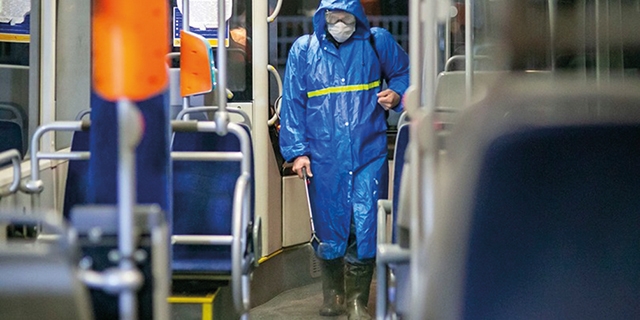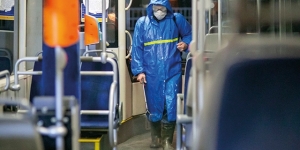Coronavirus, State of Emergency & Georgia
After the outbreak of coronavirus (COVID-19) in 172 countries and territories around the world, which has infected around 217,350 people and killed almost 9000, many countries have announced a state of emergency. But not Georgia.
A state of emergency is a situation in which a government is empowered to perform actions or impose policies that it would normally not be permitted. A government can declare such a state during a natural disaster, medical pandemics or epidemics, civil unrest, or armed conflict. Such declarations alert citizens to change their normal behavior and orders government agencies to implement emergency plans.
A state of emergency provides the state with more opportunities to resolve a crisis in a short period of time. It is important to keep in mind that a state of emergency is a temporary measure and all activities undertaken therein should be proportionate to the threat.
The President of Georgia should immediately notify the Parliament of Georgia of the order to declare of a state of emergency. If the Parliament of Georgia does not approve the order, the state of emergency is deemed canceled.
During a state of emergency, the rights of citizens may be limited or suspended in accordance with the Constitution and the law. However, this doesn’t happen automatically with the declaration of a state of emergency: the President needs to issue additional decrees upon the recommendation of the Prime Minister. Decrees that limit or suspend human rights guaranteed by the Constitution are submitted to Parliament for approval.
Also, if needed, the President may issue a decree that restricts the right of free movement of citizens and prohibits them from leaving their places of residence or other places of accommodation without an appropriate permit.
Moreover, a curfew may be imposed and citizens may be restricted from staying on the streets or in other public places, and from going outside their household premises without official permits and identity documents.
Those who are placed under quarantine, or other potentially high-risk individuals, can have their rights of movement restricted for a specific period of time and they may be ordered to undergo self-isolation.
During a state of emergency, the Ministry of Internal Affairs enforces the decision for placing a person in isolation and/or in quarantine. The decision to use military force is made by the President upon the recommendation of the Prime Minister.
To date, many countries have announced a state of emergency due to coronavirus and related threats, among them the United States, Spain, Italy, Slovakia, the Czech Republic, Hungary, Bulgaria, Latvia, Switzerland, Estonia, Armenia, and Romania. Georgia is not yet hurrying to announce a state of emergency. As Georgian Prime Minister Giorgi Gakharia said this week, so far Georgia has all the tools to properly address the challenges and there is no need to call a state emergency yet.
The PM explained that the country is moving from a stage of preventing the pandemic to a stage of dealing with the spread of the infection, which means that the number of infected people will increase. He added that at present, the Georgian health system is in good shape to adequately respond to the challenges.
“At some point, there may be a need to declare a state of emergency, and we will make that decision. With today's data, with the objective reality and assessments we have, there is no need to declare a state of emergency today. If such a need arises tomorrow, we will do so,” he said.
Minister of Health Ekaterine Tikaradze also thinks there is no need for a state of emergency yet.
“If there is an epidemic of coronavirus outbreaks in the country, we will make the decision and this will be a tough measure,” she said.
Tikaradze explained that declaring a state of emergency actually means that the state must order citizens to self-isolate in their homes.
“Only civic responsibility is the guarantee that we will save Georgia from an emergency,” the health minister said, adding that Georgia might adopt “aggressive testing” for the novel coronavirus, an approach endorsed by the World Health Organization. Health professionals, epidemiologists in particular, will start screening large numbers of people via rapid testing if and when the situation is out of control as a result of community transmission.
Paata Imnadze, Deputy Director General of the National Center for Disease Control and Public Health, says that many states declared a state of emergency when the situation was out of control.
“With us, everything that is done during a state of emergency is done without such a state. The decrees issued by the Georgian authorities are usually issued in other countries during a state of emergency. Fortunately, the overwhelming majority of our population understands the given recommendations,” he said.
The Georgian government announced on March 18 that state borders were to be closed for two weeks. However, Georgian citizens who are abroad and want to return home will be admitted.
Also, from March 18, Georgia’s skiing and mountain resorts are closed. Cafes, restaurants and bars were recommended to temporarily restrict direct service to citizens and to operate only delivery services.
From the same date, minibuses were banned, being, as the PM said, “one of the main sources spreading the virus”.
Gyms and various spa and sport centers are closed and the relevant agencies will ensure the government’s decisions are enforced.
Citizens over 70 are advised to avoid public places and to remain in isolation as far as possible to avoid potential danger to their health.
As of March 19, 40 people have been tested positive for coronavirus and one has recovered.
By Tea Mariamidze
Image source: on.ge












